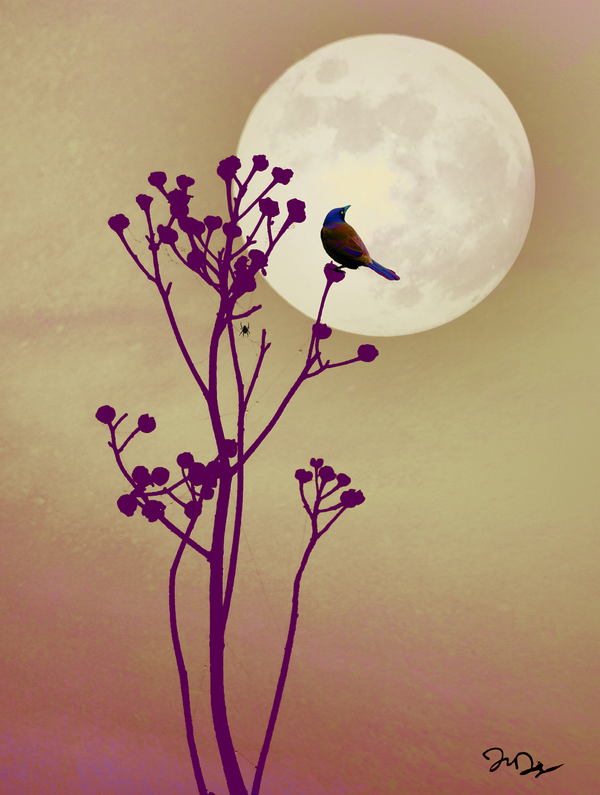loneliness
by Fukuda Chiyo-niEnglish version by Patricia Donegan & Yoshie Ishibashi
Original Language Japanese
loneliness
lies within the listener--
a cuckoo's call
| -- from Chiyo-ni: Woman Hiaku Master, Translated by Patricia Donegan / Translated by Yoshie Ishibashi |
<<Previous Poem | More Poems by Fukuda Chiyo-ni | Next Poem >>

/ Image by nine9nine9 /
View All Poems by Fukuda Chiyo-ni
This haiku expresses beautifully what I love about the form. It is not overtly "spiritual" or "sacred," yet it manages to suggest so much to us about awareness, emotion, the relationship of self and other, all through the evocation of just a single sound in nature -- the cuckoo's call.
The cuckoo's song, when heard alone, is mournful. It seems to fill the empty forest spaces with an awareness of that emptiness. It is a calling out for connection, but it is only answered by its own echo. Listening, we feel lonely.
But that feeling of loneliness, alternately delicious and heartbreaking, what is it? Is it 'out there' somewhere? Is it a vacuum in the world around us? Is it something in the song itself? Were we lonely before we heard the song? Did the song make us lonely, or did it reveal something about ourselves? Is it natural, as the cuckoo's call is natural? Is it the result of circumstance or a choice? Who or what are we lonely for? A special someone not yet met or long lost? Days gone by? A place in the world? Some part of ourself yet unknown? God? Is loneliness the existential state of being or is it a passing mood? Is what we call loneliness an aspect of who we are that we have yet to accept? Is loneliness truly lonely, or is it filled with life and connection? Is loneliness even a real thing?
With just a few words, this haiku invites us to contemplate all of these questions.
But it is not just Chiyo-ni's haiku that inspires these questions, it was first the cuckoo's call. These are questions that come to us from nature's wild places. Like the poet, we must remember to step out into the fields and listen. In this way, perhaps we will come to know our own nature better.
Recommended Books: Fukuda Chiyo-ni
| This Dance of Bliss: Ecstatic Poetry from Around the World | Haiku Enlightenment: New Expanded Edition | Chiyo-ni: Woman Hiaku Master | ||

